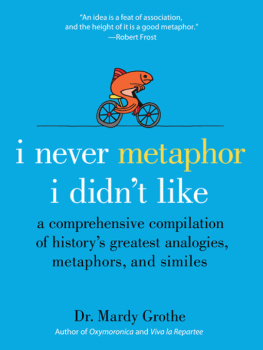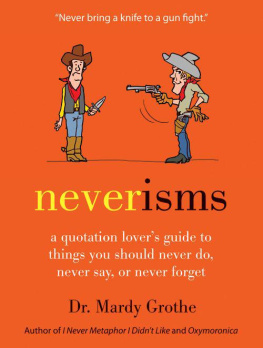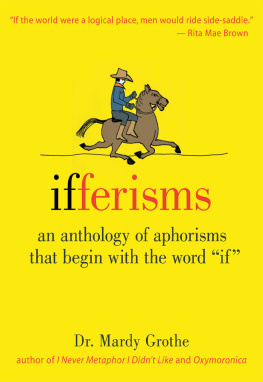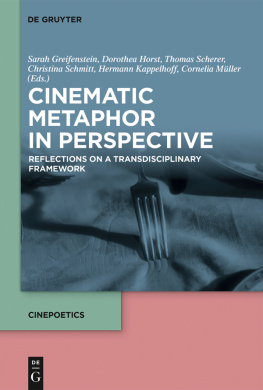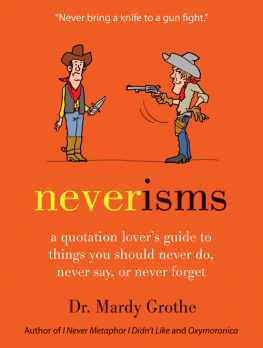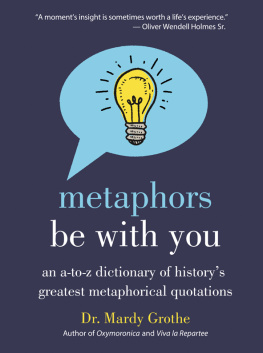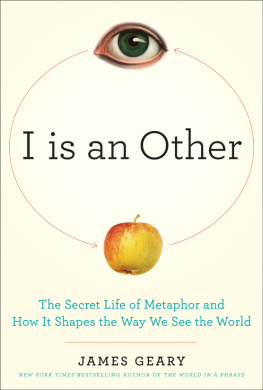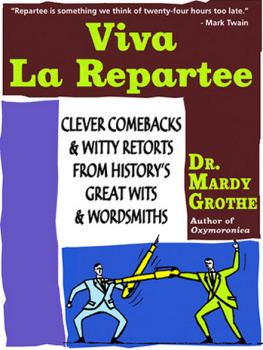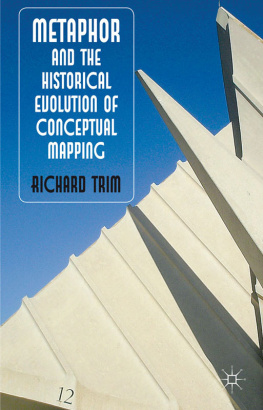T he sentence you are reading at this very moment is an example of prose (the word comes from the Latin prosa , meaning straightforward). Prose is the language people generally use to transmit information and express ideas. Closely resembling the patterns of everyday speech, prose is the kind of writing typically found in books, newspapers, and magazines. These are examples:
Prose and poetry are two methods
people can use to express ideas.
A committee is a questionable mechanism
for making decisions or solving problems.
Adolescence is a time of great turmoil.
Every now and then, though, prose is spiced up and becomes more fanciful:
Prose is to poetry as walking is to dancing.
PAUL VALRY
A committee is a cul-de-sac down which ideas are lured and then quietly strangled.
BARNETT COCKS
Adolescence is a kind of emotional seasickness.
ARTHUR KOESTLER
In the first set of observations, the prose is straightforward but prosaic , meaning it lacks imagination and even borders on dull. In the second set, the prose is enhanced by analogies , metaphors , and similes, a trio of extremely valuable tools at the disposal of writers, orators, and poets. With the assistance of these three stylistic devices, ordinary language is elevated, often to an extraordinary degree. This is undoubtedly what the nineteenth-century American journalist and poet William Cullen Bryant had in mind when he wrote:
Eloquence is the poetry of prose.
This book will celebrate historys most spectacular examples of poetic prose all constructed by the use of analogies, metaphors, and similes. Lets begin by meeting the key players.
ANALOGY
From the dawn of civilization, human beings have tried to understand one thing by relating it to something else. This approachcalled analogical thinkinghas been extremely helpful as people try to make sense out of a world that can often seem confusing or even incomprehensible.
Formally, an analogy is an attempt to state a relationship between two things that dont initially appear to have much in common (the word derives from the Greek word analogia , formally meaning a proportionate relationship between two pairs of things). In what may be the oldest analogy ever recorded, from around 1350 B.C., the Egyptian pharaoh Akhenaton was said to have observed:
As the moon retains her nature,
though darkness spread itself before her face as a curtain,
so the Soul remains perfect
even in the bosom of the fool.
In this ancient observation, the pharaoh was drawing an analogy between the moon hidden behind a curtain of darkness and a soul hidden behind a curtain of foolishness. Both continue to exist, he maintains, even when they cannot be seen. For many centuries, analogies have been used to instruct people and to dispense moral lessons. In this case, the ethical principle embedded in the analogy might be expressed this way: dont be too quick to shun or reject people, for behind all foolish or inappropriate actions there exists a perfect soul within.
While analogical thinking goes back to the oldest days of antiquity, people thinking about analogies these days are likely to recall those peculiar and often perplexing constructions that have long been a staple of intelligence tests and scholastic aptitude tests. The format will probably be familiar to you:
illness : life :: (blank) : iron
a. steel b. blade c. forge d. rust
Following a convention going back to ancient times, the analogy is read this way:
Illness is to life as (blank) is to iron.
The task here is to figure out which one of the four multiple-choice options bears the same relationship to iron as illness does to life. After a moments thought, the answer is easily reasoned out. Just as illness can threaten or end a life, rust can threaten or destroy iron.
In the fourth century B.C., the Greek philosopher Antisthenes found another aspect of the human experience that was analogous to iron and rust:
As iron is eaten away by rust,
so the envious are consumed by their own passion.
Rather than simply assert that envy is a destructive passion, Antisthenes begins by taking a phenomenon that is well knownthe damaging effect of rust on ironand relates it to something not so familiarthe damaging effect of envy on people. By expressing his thought in an analogy, he made it very easy for people to forge a mental picture of the slow, corrosive process whereby one thing gradually eats away and eventually destroys something else.
People who say Let me offer an analogy are trying to explain one thing by relating it to something else. The entry on analogy in The Concise Oxford Dictionary of Literary Terms explains it this way:
Illustration of an idea by means of a more familiar idea that is similar or parallel to it, and thus said to be analogous to it.
Structurally, analogies are often constructed in the A is to B as C is to D format:
Reading is to the mind,
what exercise is to the body.
JOSEPH ADDISON | As cold waters to a thirsty soul,
so is good news from a far country.
THE BIBLEPROVERBS 25:25 |
As soap is to the body,
tears are to the soul.
YIDDISH PROVERB | What garlic is to salad,
insanity is to art.
AUGUSTUS SAINT-GAUDENS |
Sometimes the format is varied slightly, and the intention shifts from the serious to the humorous:
The murals in restaurants are
on a par with the food in museums.
PETER DE VRIES
And sometimes an additional explanation is appended after the formal analogy, just to make sure the point is understood:
Doing business without advertising is like winking at a girl in the dark.
You know what you are doing, but nobody else does.
STUART H. BRITT
Al Capone was to crime what J. P. Morgan was to Wall Street,
the first man to exert national influence over his trade.
ANDREW SINCLAIR
Analogies form the basis for much of the thinking people do about life. When we encounter something new and unfamiliaror try to make sense out of something that is not well understoodwe often benefit from relating it to something else we know well. Sigmund Freud expressed it nicely:
Analogies, it is true, decide nothing,
but they can make one feel more at home.
In 2006, seventy-eight-year-old Harry Whittington was accidentally shot in the face by Vice President Dick Cheney in a celebrated hunting accident. When it became apparent that Whittingtons wounds were not life threateningand that he was expected to fully recovercountless jokes from comedians and late-night talk-show hosts filled the airwaves. Im sure you recall some of them.
Whittington, it was soon learned, was an Austin attorney, a successful real-estate investor, and a long-time member of the Texas Republican party. Early in his career, when LBJ and the Democrats were in control of the Lone Star State, Whittington was the only Republican serving on the board of the Texas Department of Corrections. As he learned more about the grim reality of incarceration, he made an unsettling discovery. Yes, prisons get criminals off the street, but they do a miserable job of rehabilitation and, ironically, may even stimulate further criminal behavior. He began to express his view this way:
Prisons are to crime what greenhouses are to plants.
In his analogy between prison life and the world of horticulture, Whittington made a compelling pointas greenhouses foster the growth of budding plants, prisons are excellent breeding grounds for future criminal behavior.

